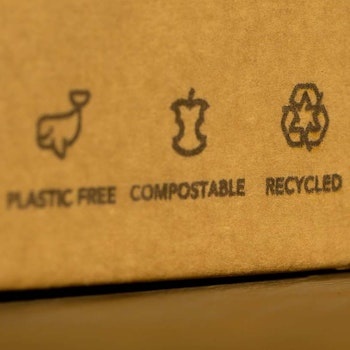
Green Skepticism: Mitigating the Risks to Brands
Published on: September 22 2022
“Greenwashing”, as defined by Investopedia, refers to “the process of conveying a false impression or providing misleading information about how a company’s products are more environmentally sound.” That perceived greenwashing can subject consumer-facing brands to significant legal risks has been on dramatic display in recent months. For example, in early July environmental groups filed suit in Amsterdam against the airline KLM, alleging violations of EU consumer law over advertising alleged to overstate how sustainable its flights are. Later in July the fast-fashion brand H&M was also hit with a class action lawsuit in New York over alleged misleading and false sustainability marketing efforts. And more recently the Advertising Standards Authority in the UK banned a television advertisement for Persil, one of Unilever’s laundry detergents, for allegedly being misleading in claims about the product’s environmental benefits. The growing frequency of such legal actions should give brand advertisers sufficient reason to be more circumspect with respect to how they communicate sustainability claims, not least because of the damage such public censure can impose on their brand equity.
But even in the absence of legal consequences, brand advertisers should be wary of the negative implicit associations that consumers can develop if environmental claims are conveyed too aggressively. People tend to be hard-wired to be offended if an implied social expectation of fairness and mutual trust is seen to be violated. Game theorists and evolutionary biologists modeling economic scenarios have shown that productive social exchange tends to only arise when the participants have a sophisticated ability to readily detect when another party in the exchange will likely fail to honor such expectations. Psychologists inspired by this evolutionary demand have posited the existence of a “cheater detection module” in the brain that operates automatically, outside awareness, which anxiously looks for any information that might suggest the other party in an exchange may not in fact be honoring any implied social norms, and instead be a defector – someone seeking a short-term strategic advantage who has no intention of paying something back (or forward) in the future. A large variety of behavioral experimentation, neuroimaging data, and common-sense considerations suggests that something like a cheater detection module does in fact exist.
But even in the absence of legal consequences, brand advertisers should be wary of the negative implicit associations that consumers can develop if environmental claims are conveyed too aggressively. People tend to be hard-wired to be offended if an implied social expectation of fairness and mutual trust is seen to be violated. Game theorists and evolutionary biologists modeling economic scenarios have shown that productive social exchange tends to only arise when the participants have a sophisticated ability to readily detect when another party in the exchange will likely fail to honor such expectations. Psychologists inspired by this evolutionary demand have posited the existence of a “cheater detection module” in the brain that operates automatically, outside awareness, which anxiously looks for any information that might suggest the other party in an exchange may not in fact be honoring any implied social norms, and instead be a defector – someone seeking a short-term strategic advantage who has no intention of paying something back (or forward) in the future. A large variety of behavioral experimentation, neuroimaging data, and common-sense considerations suggests that something like a cheater detection module does in fact exist.

The automatic operation of an easily activated cheater detection module has important strategic implications for advertisers focused on highlighting brand benefits that relate to issues of environmental sustainability. The relationship between a consumer and a brand marketer is clearly a form of social exchange, and one in which trust and expectations of fairness can be crucial if the marketer expects to nudge a consumer into the category of a brand loyalist who has a propensity for repeat purchase.
Attempts to greenwash clearly violate the expected norms of social exchange. And brands engaging in it, whether deliberately or inadvertently, are at high risk for triggering the imputed cheater detection module. It is then not surprising that studies that have attempted to identify potential barriers to more sustainable consumption routinely identify consumer distrust of green product claims as a key factor in undermining the appeal of products that are marketed as more environmentally-friendly.
Similarly, empirical research on the factors which contribute to the formation of purchase intent for green products have identified a growing trend towards a generalized “green skepticism” that adversely impacts the development of such intentions. Similar to climate change skepticism, green skepticism is frequently described as a form of motivated reasoning by which consumers display heightened suspicion of marketing claims made about purportedly environmentally-friendly products relative to product claims that relate more to product performance issues. Recent research on this topic has found that strongly worded or unrealistic claims made when communicating the environmental benefits of green products can result in consumers becoming mistrustful and wary in response, yielding more cognitive processing and mental counter-arguing of those claims. This type of conscious consideration of marketing claims can negatively impact attitudes towards brands and products, especially among more knowledgeable consumers. Products associated with strong or actually deceptive green claims have been found to be rated as less attractive than otherwise comparable alternatives, and in some cases have been noted to increase negative “word of mouth” in peer-to-peer consumer communications.
Given these challenges, how should marketers promote the environmental benefits of their products without activating the cheater detection module and eliciting green skepticism? Fortunately, they have a clear path forward. First, they need to deliberately avoid greenwashing language in their communications. Consumers will rapidly detect it, and once they do it will undermine their trust in your brand. And once that happens it will likely result in a shift in their attitude towards both the brand and the parent company. And then they might well share that skepticism with their social network.
Second, if you’re selling a product with real and verifiable sustainability benefits, you nonetheless might want to soft-sell those benefits. More vaguely communicated green product claims appear less likely to increase perceived greenwashing on the part of consumers. And the conveyance of green bona fides in a more contextual and indirect fashion (such as inclusion of nature imagery in marketing communications or packaging) can even implicitly prime positive affective responses to a product.
Third, instead of deceiving, build trust and rely on objective verification. Advertising or packaging that reinforces sustainability through the use of well-known and trusted third-party ecolabeling can increase a brand’s association with sustainability with less risk of triggering green skepticism. Brands should also support educational efforts to promote the certifying bodies and explain the certifications to consumers. A preponderance of evidence suggests that -- when understood by consumers -- such certifications can provide a simple method to convey the greenness of products without immediately eliciting a green skepticism response.
And lastly, brand marketers should understand that it is possible to substantially mitigate the risk of activating implicit green skepticism in consumers. This might be accomplished by pre-testing claims to determine if they elicit underlying feelings of trust or mistrust, and to determine if they are effective at promoting purchase appeal in different consumer segments. Online implicit testing tools can be a cost-effective and powerful way of assessing such subtle consumer impacts, especially if those impacts include affective responses or automatically activated negative associations that consumers might not be aware of or able to accurately articulate.
Michael E. Smith, PhD heads CloudArmy’s Sustainability Practice and is the author of Inspiring Green Consumer Choices: Leverage neuroscience to reshape marketplace behavior (2021, Kogan-Page, London)
Similarly, empirical research on the factors which contribute to the formation of purchase intent for green products have identified a growing trend towards a generalized “green skepticism” that adversely impacts the development of such intentions. Similar to climate change skepticism, green skepticism is frequently described as a form of motivated reasoning by which consumers display heightened suspicion of marketing claims made about purportedly environmentally-friendly products relative to product claims that relate more to product performance issues. Recent research on this topic has found that strongly worded or unrealistic claims made when communicating the environmental benefits of green products can result in consumers becoming mistrustful and wary in response, yielding more cognitive processing and mental counter-arguing of those claims. This type of conscious consideration of marketing claims can negatively impact attitudes towards brands and products, especially among more knowledgeable consumers. Products associated with strong or actually deceptive green claims have been found to be rated as less attractive than otherwise comparable alternatives, and in some cases have been noted to increase negative “word of mouth” in peer-to-peer consumer communications.
Given these challenges, how should marketers promote the environmental benefits of their products without activating the cheater detection module and eliciting green skepticism? Fortunately, they have a clear path forward. First, they need to deliberately avoid greenwashing language in their communications. Consumers will rapidly detect it, and once they do it will undermine their trust in your brand. And once that happens it will likely result in a shift in their attitude towards both the brand and the parent company. And then they might well share that skepticism with their social network.
Second, if you’re selling a product with real and verifiable sustainability benefits, you nonetheless might want to soft-sell those benefits. More vaguely communicated green product claims appear less likely to increase perceived greenwashing on the part of consumers. And the conveyance of green bona fides in a more contextual and indirect fashion (such as inclusion of nature imagery in marketing communications or packaging) can even implicitly prime positive affective responses to a product.
Third, instead of deceiving, build trust and rely on objective verification. Advertising or packaging that reinforces sustainability through the use of well-known and trusted third-party ecolabeling can increase a brand’s association with sustainability with less risk of triggering green skepticism. Brands should also support educational efforts to promote the certifying bodies and explain the certifications to consumers. A preponderance of evidence suggests that -- when understood by consumers -- such certifications can provide a simple method to convey the greenness of products without immediately eliciting a green skepticism response.
And lastly, brand marketers should understand that it is possible to substantially mitigate the risk of activating implicit green skepticism in consumers. This might be accomplished by pre-testing claims to determine if they elicit underlying feelings of trust or mistrust, and to determine if they are effective at promoting purchase appeal in different consumer segments. Online implicit testing tools can be a cost-effective and powerful way of assessing such subtle consumer impacts, especially if those impacts include affective responses or automatically activated negative associations that consumers might not be aware of or able to accurately articulate.
Michael E. Smith, PhD heads CloudArmy’s Sustainability Practice and is the author of Inspiring Green Consumer Choices: Leverage neuroscience to reshape marketplace behavior (2021, Kogan-Page, London)





